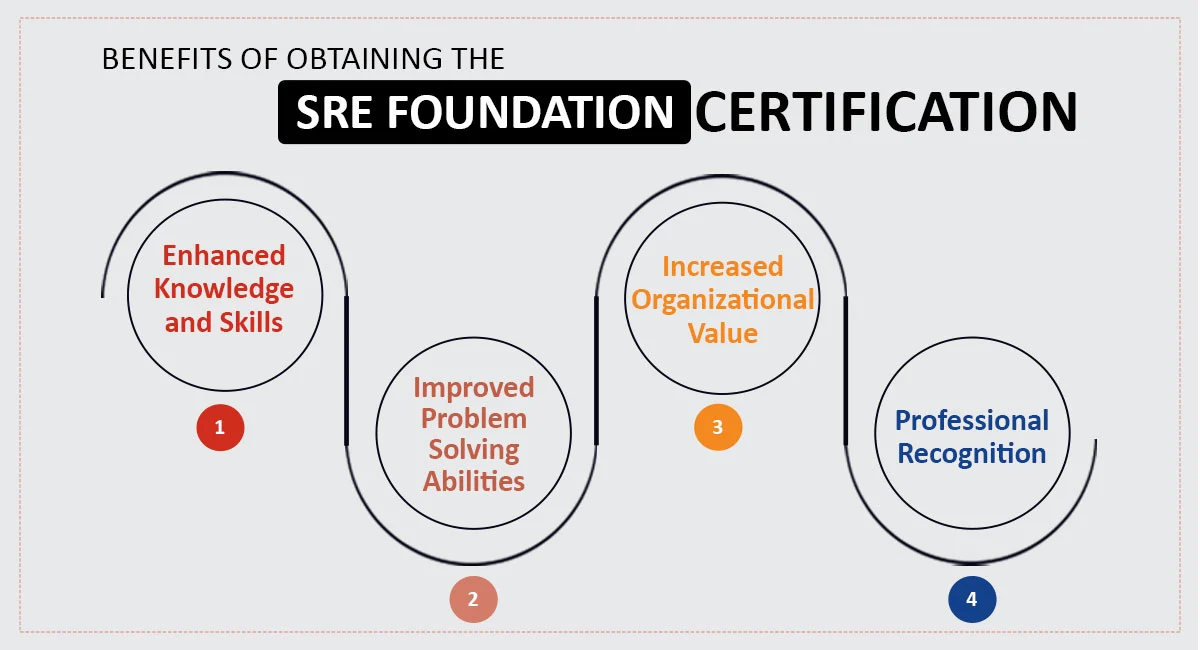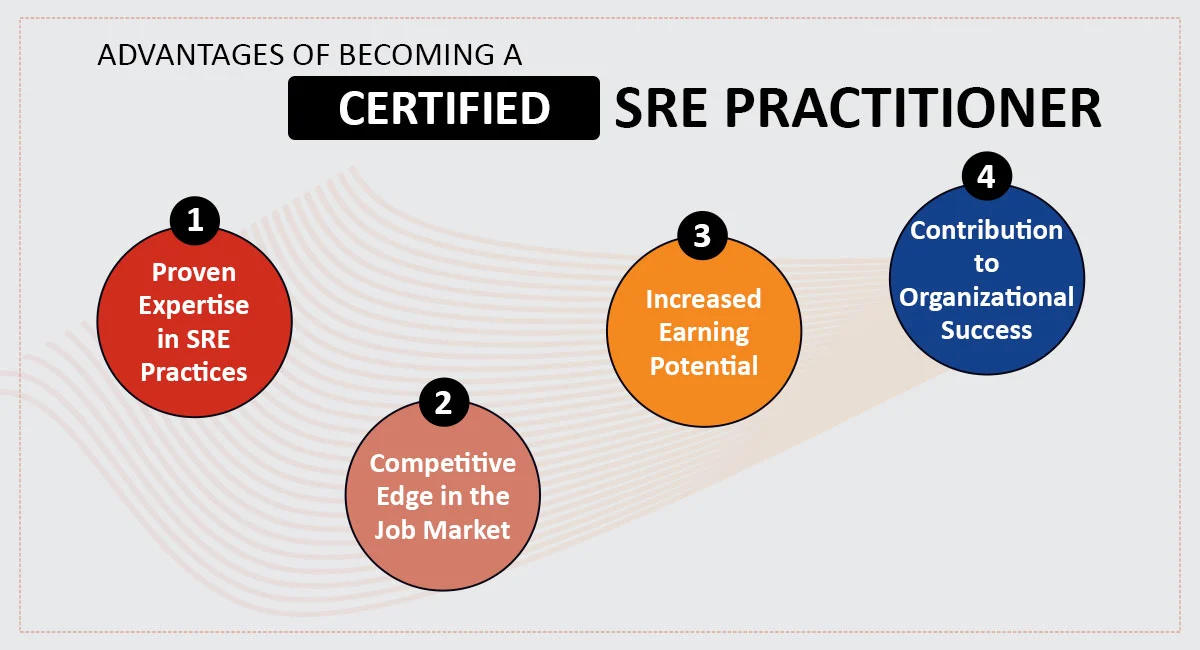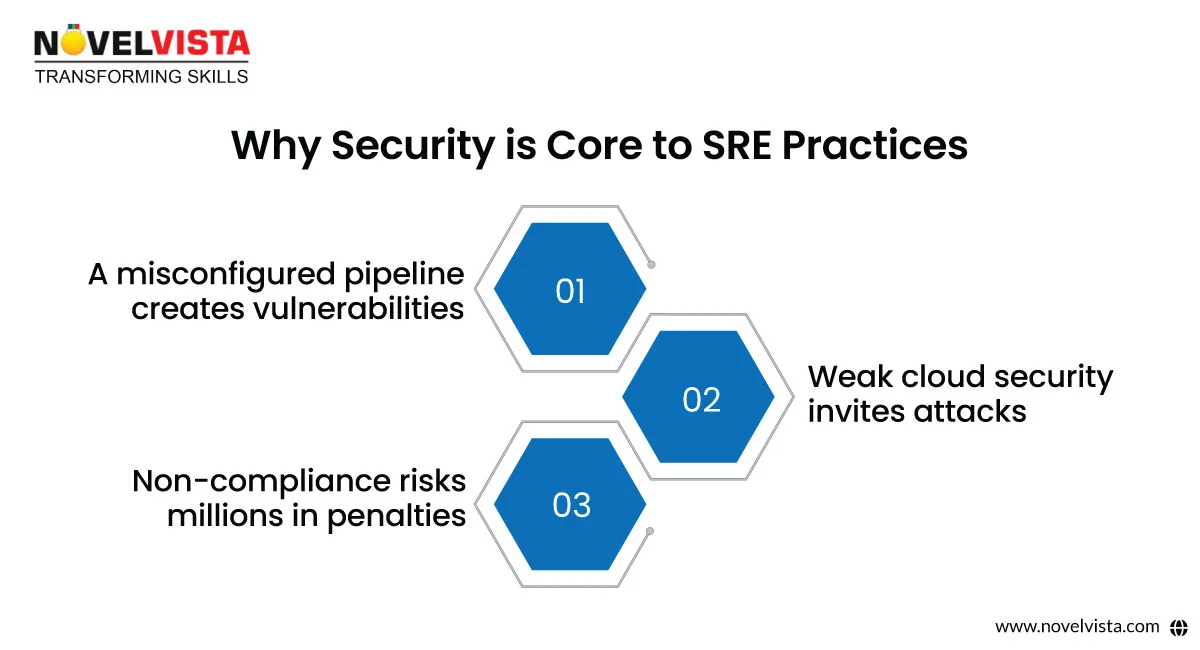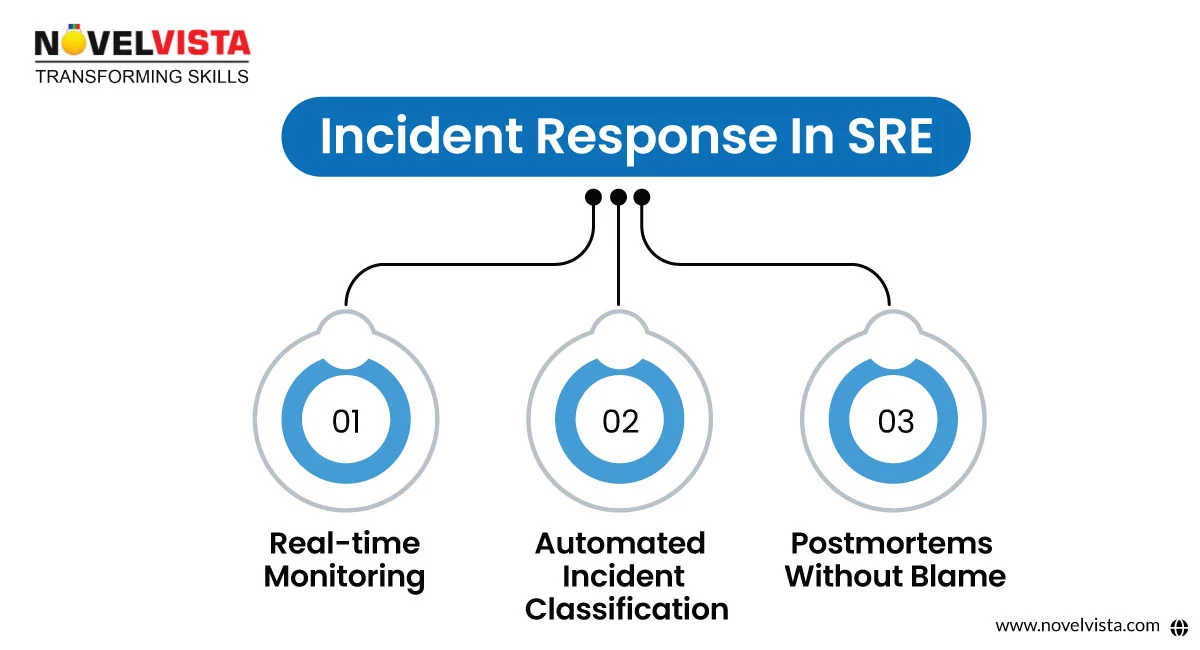As businesses increasingly rely on digital services and cloud-based infrastructure, ensuring reliability and security has become paramount.
This is where Site Reliability Engineering (SRE) plays a crucial role. SRE combines software engineering and IT operations to create systems that are scalable, efficient, and robust.
A key aspect of SRE is securing the pipeline - the process of moving code from development to production. With data breaches and outages threatening operations, implementing rigorous security across the pipeline stages including building, testing, and deployment is essential.
Recognized certifications like the SRE Foundation certification demonstrate an individual’s expertise in applying best practices like securing pipelines.
The elevated SRE Practitioner certification in the UK represents the capability to direct and handle intricate SRE ventures, even in demanding scenarios. When dangers morph, bespoke SRE security tutorials and consultation aid groups in maintaining their competencies up to date.
In the UK, theSRE certificationaims to reflect the competency and expertise of individuals engaged in the SRE field.
It focuses on an extensive assortment of subjects, ranging from SRE principles to practices and methodologies.
By securing this certificate, experts can showcase their skill in setting up SRE methods, including pipeline protection.
The certification revolves around a thorough examination process that assesses a candidate's comprehension of SRE principles and their capacity to put them into practice in real-life situations.

Gaining the SRE Foundation certification has several merits for professionals in the SRE sphere.
First, it offers an acknowledged accreditation that signifies your proficiency in SRE methodologies, giving you an upper hand in the job arena.
Employers often search for certified experts while recruiting for SRE roles, as it indicates a dedication to top-notch standards and a profound comprehension of the domain.
Next, the certification furnishes you with the know-how and competencies required to apply the best methods in safeguarding the pipeline.
It encompasses subjects like secure software production, susceptibility control, and incident management, authorizing you to pinpoint and lessen hazards throughout the pipeline.
Not only does this bolster the trustworthiness and protection of the systems you operate, but it also fosters reassurance in your stakeholders.
Moreover, obtaining theSRE Foundationcertification empowers you to become part of an international network of SRE specialists.
This collective offers chances for professional connectivity, dialogue-driven learning platforms, and insights into the newest advancements and innovations in the realm.
As an insider in this network, you are always abreast with the shifting trends and technologies in SRE, hence, advancing your proficiency and authority.
By the way, have you checked outSRE toolsthat can greatly assist you?
If you're a professional striving to bolster your SRE career within the United Kingdom, the SRE Practitioner certificate serves as a significant boost.
It's a step beyond the basic certification, taking a more refined look at a range of complex SRE principles and methodologies.
Areas of deeper exploration include system architecture, resource forecasting, and handling unforeseen incidents.
Earning this credential illustrates your capacity in steering and overseeing SRE projects amongst pipeline security in intricate and difficult settings.

Gaining the status of a certified SRE Practitioner in the United Kingdom paves the way for career progression.
This accreditation demonstrates your proficiency in initiating advanced SRE methods and your capacity to take on complex SRE projects.
Those with certified SRE Practitioner status are prized by employers, proof that they can direct and oversee SRE teams, ensuring the dependability and safety of vital systems.
Besides, theSRE Practitioner certificationfurnishes you with the competencies to architect and bring into effect secure pipelines.
It encompasses subjects like threat modeling, secure deployment procedures, and ongoing monitoring, facilitating the creation of solid and adaptable pipelines capable of countering security threats.
Not only does this bolster the safety of the systems you oversee, but it also aids in the overall triumph of your enterprise.
Additionally, securing the SRE Practitioner certification gives you access to elite resources, encompassing advanced training and consultation services.
These offerings can exponentially augment your proficiency and understanding in pipeline security, positioning you to remain on the cutting edge in the persistently evolving realm of SRE.
SRE is all about finding the right balance between innovation and dependability. But there is a catch: every release is a time bomb if the security isn't built in.

Think about it:
This is why SRE security best practices must be woven into every stage of software delivery.
Ready to dive deeper? Let’s break it down.
Setting Service Level Objectives (SLOs) isn’t just about performance—it’s about protecting user experience.
Thinking of taking your skills to the next level? Check out SRE Practitioner Training & Certification to boost your expertise.
Innovation and run time don't always cooperate–that's why error budgets are important.
It’s the acceptable level of failure your system can handle before reliability efforts take priority over feature releases.
If your team makes too many mistakes, safety and security will be more important than adding new features. Risk analysis in software pipelines makes sure teams make data-based balances between security and innovation. It prevents developers from shipping risky updates just to meet deadlines.
Want to crack your next SRE interview? Have a look at SRE Interview Questions before you step into that high-stakes discussion.
Here’s a reality check: most security breaches happen because of poor cloud security.
Best practices for cloud security in SRE:
Whether you're securing multi-cloud environments or on-prem infrastructure, cloud security for SRE is non-negotiable.
Let’s settle this once and for all: security isn’t just the security team’s job. Good security governance in SRE ensures everyone is accountable.
How do you implement strong security governance?
Security isn’t just about fixing things when they break—it’s about building systems that don’t break in the first place.
Let’s face it: things will go wrong. What is the difference between a minor hiccup and a full-blown disaster? How well you handle it.

Best incident response practices in SRE:
Your ability to detect and respond to security threats determines how quickly you recover. Want a deep dive? Incident management in SRE has got you covered.
No one enjoys failures, but every failure is a chance to improve.
A blameless postmortem helps teams:
When failure becomes a learning opportunity, you build a stronger, more resilient engineering culture.
Manual tasks slow everything down. Why not automate security instead?
Security automation in SRE:
By eliminating manual toil, teams can focus on innovation instead of firefighting.
SRE is evolving fast—if you’re not learning, you’re falling behind.
Where should you focus next?
Whether you’re just getting started or already leading SRE teams, continuous learning and upskilling is the only way to stay ahead.
Securing the pipeline in Site Reliability Engineering (SRE) is crucial because the CI/CD pipeline serves as the backbone of modern software delivery, handling everything from code integration to deployment. A compromised pipeline can lead to unauthorized code changes, data breaches, and system outages, making it a prime target for attackers. SREs play a key role in safeguarding this process by integrating security checks into workflows, managing secrets securely, enforcing least-privilege access, and continuously monitoring for threats. By embedding security into every stage of the delivery lifecycle, SREs help ensure not only system reliability and performance but also protect the integrity of the software and the trust of its users.
Besides acquiring certifications, there exist specific SRE services and consultancies that concentrate on pipeline security.
These enterprises offer proficiency in planning, executing, and maintaining secure pipelines for businesses of every scale.
Their offerings comprise a spectrum of services, such as risk assessments for vulnerabilities, reviews of secure code, and strategies for responding to incidents.
Through tapping into their knowledge, firms can be assured that their pipelines are secure and robust, thereby reducing software deployment-related risks.
In addition, these SRE service entities and advisers offer learning seminars and workshops focused on pipeline security.
These programs are designed to equip industry practitioners with the necessary understanding and skills to apply the best standards in pipeline security.
Through partaking in such sessions, they can improve their grasp of pipeline security and glean actionable perspectives on instituting robust security protocols.
To ensure pipeline safety, SREs must engage in processes such as threat analysis, secure coding evaluations, and efficient surveillance.
Acquiring certifications such as the SRE Foundation and SRE Practitioner, as well as pursuing advanced security courses, are signs of proficiency in safeguarding pipelines.
As system complexities increase, collaborating with dedicated SRE security advisory companies can offer in-depth expertise to help overcome threats.
Continuous learning of the latest capabilities and effective methods is essential for SREs seeking career advancement.
Concentrating on pipeline safety boosts the durability and robustness of online services. A range of educational opportunities are at the disposal of SRE professionals aiming to strengthen their skill set in this vital area.
SREs can feel confident in meeting present andfuture challengesby investing in pipeline security.
And if that sounds intriguing enough, then check outNV SRE Foundation Trainingwhich can equip you with the right skillset and fit in the things we have been talking about in this post so far.
Thank you for reading!Learn top SRE practices today.
The future of SRE practices isn’t just about uptime—it’s about security, automation, and adaptability.
To stay ahead, organizations need to invest in training, automation, and security governance.
Want to future-proof your career?
Start your SRE journey with SRE Practitioner Training & Certification, and take your skills to the next level with NovelVista!
Confused about our certifications?
Let Our Advisor Guide You